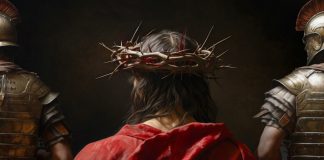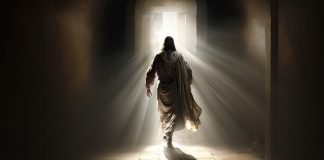Does the Old Testament speak about Jesus or someone else?
The book of the Acts of the Apostles presents an encounter, supernaturally mediated by God, between Philip, one of the seven deacons, and an Ethiopian dignitary. When the Christian missionary met him, the Ethiopian eunuch was reading from the book of the prophet Isaiah, one of the many Messianic prophecies, and asked Philip a question we often ignore: “Tell me, please, who is...
“And forgive us our trespasses…” But what if they persist?
In our Christian experience, we strive for perfection, but we honestly admit we are a universe away from it. Our inability to live up to God’s standards can lead us to feel we can no longer benefit from divine forgiveness, at least not until we prove strong enough not to give into the sins we are battling.
Who is Jesus?
Christians take their name from Jesus Christ. According to World Population Review, there are 2.38 billion Christian adherents across the globe. However, there is also a large portion of the world’s population who know little to nothing about Jesus. Research by Baxter in 2007 found that during that year, 30 million people would die without having heard about Jesus.
Strong prayers to the hidden God
No one has ever seen God, but the One who knew Him before He was born on this earth taught us all to address Him in prayer.
Would Jesus be disappointed in the Church?
The dissonance between what church representatives say and what they do, the crises caused by sexual scandals, tolerating sin, not taking responsibility for mistakes and hiding them, and selling spiritual gifts for money, are just a few of the reasons why people say they’re disappointed in the Church.
The last days of Jesus in Bible prophecy
The story of Jesus's first coming to earth is remarkable, not only because it was foretold thousands of years in advance, but also because the prophesied details of His passion and death were exactly fulfilled.
Silence of the Lamb
Slapped, spat in the face, insulted, falsely accused, lashed, ridiculed with a crown of thorns, passed from judge to judge and booed by the crowd, the Son of God chose the most unusual form of defence. Silence.
1,000 years later
Christianity is fundamentally built on the belief that the life and mission of Jesus Christ on earth were a continuation and fulfilment of God’s earlier revelation, known as the Old Testament.
How did Jesus view the Scriptures?
Jesus had the highest regard for the Scriptures. The Gospels show that He was familiar with the content of the Scriptures, which He saw as the final authority for establishing truth, rejecting temptation, and choosing the way forward in the present and the future.
What did Jesus believe about the meaning of life?
Between 2008 and 2021, 379 people died in selfie-related accidents. Made habitual by consumerism and social media, this cult of self-promotion is part of a nefarious cycle of narcissistic stimulation and a powerful indicator of our longing for worth and, by extension, meaning.
Ready for the return of Jesus
"Look, I am coming soon!" (Revelation 22:12) This is a promise whose fulfilment has been awaited by generations of believers who have pinned all their hopes on Jesus's return in glory. But what does "soon" mean? And what should we do to avoid being so preoccupied with the signs that we neglect other essential aspects of our preparation?
Jesus: The Word and His words
Jesus' principles can still shape a sincere discourse even though many centuries have passed since the moment they were displayed in His life.
In the footsteps of the historical Jesus: benefits and perils
Christianity is either historical or not. It claims that “God acted decisively in history, revealing Himself in external, specific events attested in the Scriptures of the Old and New Testaments.”[1] The most important of these events was the coming of Jesus as the Messiah, the saving Christ.
Can I trust the Bible?
The Bible is not the product of an event or a circumstance, but of time, study and especially of the journey that humanity took on its way to its development. But could it be that all the time that has passed has also eroded its relevance? How much confidence can we still have in the Bible, in the 21st century?


























